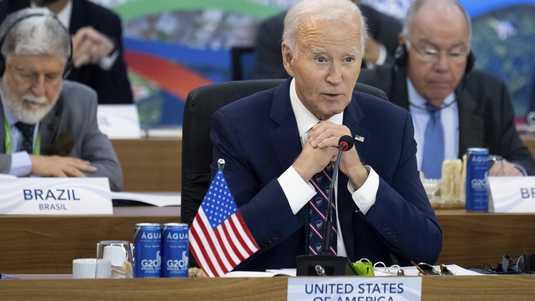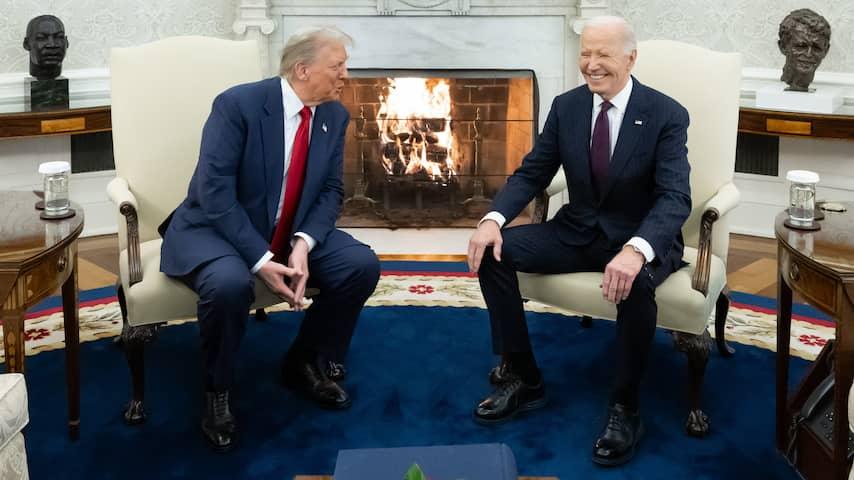Bidens Strategic Shift on Anti-Personnel Mines in Ukraine
The recent decision by the Biden administration to provide Ukraine with anti-personnel mines marks a significant pivot in U.S. military policy amid the ongoing conflict with Russia. This strategic shift comes as Ukrainian forces endeavor to reclaim territory and strengthen their defensive positions against a backdrop of escalated hostilities. The provision of these mines is seen by many analysts as a response to the urgent need for enhanced defensive measures, potentially changing the dynamics on the battlefield. However, this move also raises complex ethical and humanitarian concerns, given the potential long-term dangers posed by unexploded ordnance to civilians in post-conflict zones.
Supporters of the decision argue that the deployment of anti-personnel mines could provide crucial tactical advantages, allowing Ukrainian forces to create barriers and hinder enemy movement. Key points about this policy change include:
- Military Necessity: Many believe that without sufficient support, Ukraine may struggle to maintain its current defensive posture.
- International Response: There is notable discourse among NATO allies as they assess the implications of this move on global humanitarian laws.
- Long-term Impact: Experts warn that the societal ramifications of introducing such weaponry could lead to significant challenges in the years following the conflict.

Implications for U.S.-Ukraine Relations and Global Security
The recent decision by the Biden administration to supply Ukraine with anti-personnel mines marks a notable shift in U.S. military support strategy, potentially altering the dynamics of ongoing conflict in Eastern Europe. This move underscores a renewed commitment to bolstering Ukraine’s defensive capabilities amid escalating tensions with Russia. Experts argue that the implications extend beyond the battlefield, potentially reshaping the geopolitical landscape in Europe. Specifically, this decision could serve to:
- Enhance Ukraine’s Deterrence: The introduction of anti-personnel mines may deter aggressive movements by Russian forces, creating a more complicated environment for any potential advances.
- Signal U.S. Resolve: By providing advanced weaponry, the U.S. reinforces its support for Ukraine, sending a clear message to both allies and adversaries regarding its commitment to European security.
- Impact NATO Dynamics: This shift could encourage other member nations to re-evaluate their defense strategies and increase military cooperation within the alliance.
However, the use of anti-personnel mines does not come without concerns, highlighting the complex nature of modern warfare and international norms. Critics question the ethical implications and long-term humanitarian impacts of deploying such weaponry, pointing to the potential for civilian casualties and post-conflict challenges. As the global community observes these developments, it raises pressing questions about:
- Compliance with International Treaties: The U.S. must navigate its commitments under existing international agreements that seek to limit the use of mines.
- Future Conflict Scenarios: The introduction of these munitions could lead to a protracted conflict, complicating peace negotiations and stability efforts in the region.
- Regional Security Cooperation: Neighboring countries might need to bolster their defenses, contributing to an arms race that could destabilize the broader security environment in Eastern Europe.

Expert Opinions: Balancing Humanitarian Concerns with Military Needs
In a contentious move that has stirred debate globally, the Biden administration’s decision to supply Ukraine with anti-personnel mines raises critical questions about the balance between military strategy and humanitarian responsibility. These munitions, notorious for their long-lasting effects on civilian populations long after conflicts have ended, become imbued with ethical implications. Advocates of this action argue that such weaponry is essential for Ukraine to defend its sovereignty, particularly in the face of sustained aggression. They assert that empowering Ukraine militarily will ultimately deter further Russian advances, thereby reducing the potential for a protracted conflict that could result in even greater humanitarian crises.
Conversely, humanitarian organizations and advocates caution against the deployment of anti-personnel mines, citing their indiscriminate nature and the severe risk they pose to civilians, especially children. The fear is that these weapons will create a treacherous aftermath, complicating post-war recovery efforts and inflicting suffering on non-combatants long after hostilities cease. Key considerations raised in this debate include:
- Impact on civilians: The long-term danger mines pose to innocent lives.
- International law implications: Whether this decision aligns with global standards on arms use.
- Post-conflict recovery: Challenges that may arise in demilitarizing affected areas.
As the global community watches closely, the decision underscores a pivotal tension in modern warfare: the necessity for immediate military support must be weighed against the moral obligation to protect those who are most vulnerable. The discourse surrounding this decision may serve as a reflection of broader attitudes toward conflict—pitting strategic imperatives against the call for empathetic governance in times of crisis.

Recommendations for U.S. Oversight and Accountability in Military Aid
As the U.S. commits to supplying anti-personnel mines to Ukraine, it is essential to ensure robust oversight and accountability mechanisms are established to monitor the use of military aid. Transparency should be a foundational principle, incorporating measures that require detailed reporting on the deployment and use of such munitions. This can include:
- Regular audits of military assistance programs.
- Implementation of third-party monitoring to assess compliance with international humanitarian law.
- Public disclosure of aid recipients and the specific types of military equipment supplied.
Furthermore, it is crucial to engage international partners and organizations to create a unified approach towards military aid oversight. Collaborative efforts can help address potential misuse or unintended consequences of military assets in conflict zones. Recommendations for enhancing such frameworks may include:
- Establishing a coalition of stakeholders to review and report on military aid effectiveness.
- Incorporating human rights assessments into the approval process for military shipments.
- Promoting dialogue with local communities affected by military aid to gauge its impact on civilian safety.

